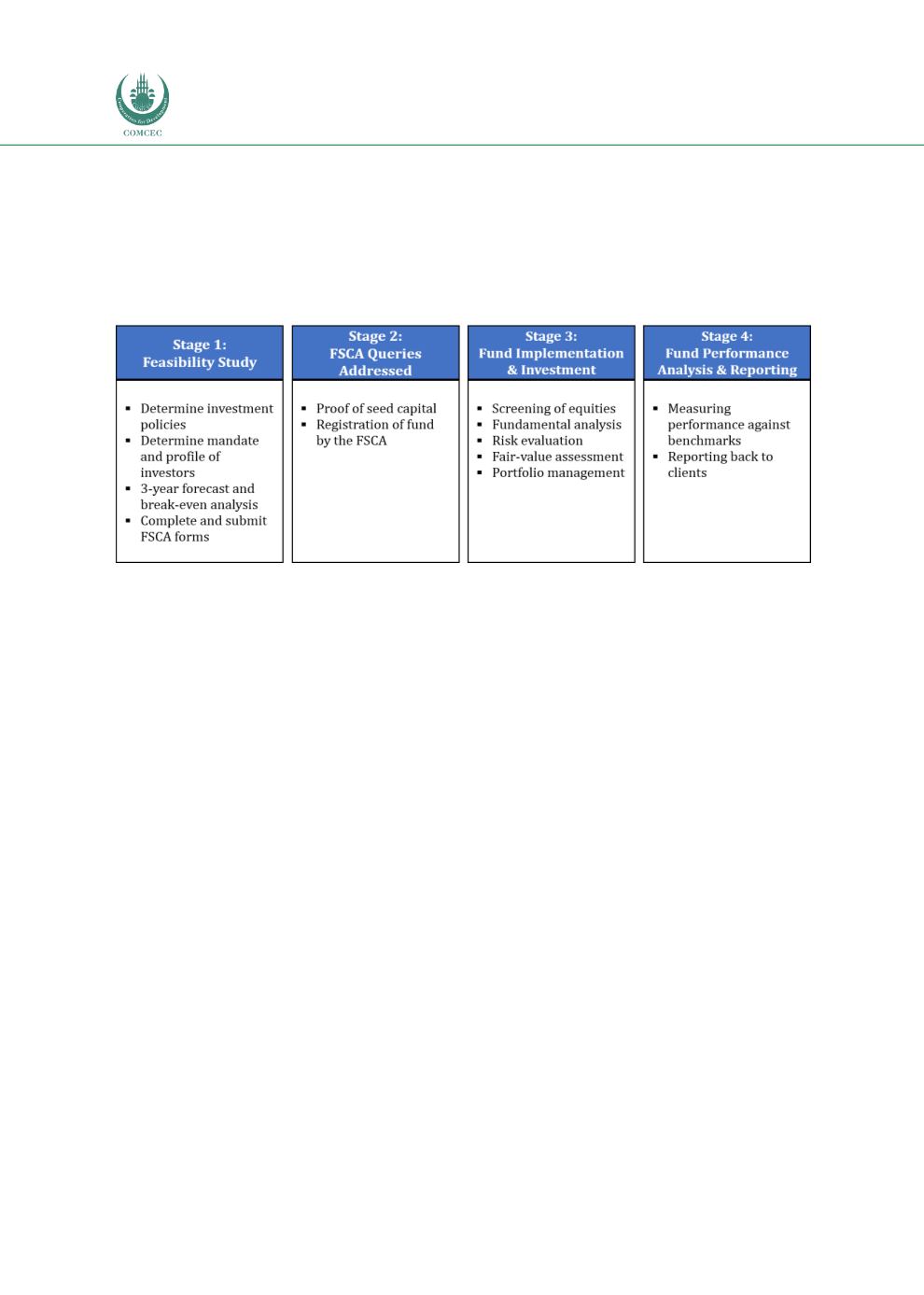

Islamic Fund Management
148
4.5.3
Investment and Commercial Considerations
Different countries have different methodologies or process flows on how a fund may be
developed.
Figure 4.20illustrates the processes of fund development from conceptualisation,
planning, regulatory approval and implementation to monitoring of funds in South Africa.
Figure 4.20: Process Flow of Fund Development in South Africa
Source: Kagiso Asset Management
Value Propositions of Islamic Funds
It is fairly challenging in South Africa to construct balanced fund solutions for investors which
comply with the prudential guidelines of Regulation 28 and Shariah parameters yet still offer
good returns. Islamic funds tend to differ from conventional funds in terms of their underlying
sector risk, stock risk and asset allocation.
1.
Shariah Compliance and Shariah Screening
Demand for Islamic funds has been largely fuelled by increasing awareness, rising trade with
the Middle East, growing demand by local Muslim populations for Shariah-compliant products,
and an ever-increasing demand for more ethical risk sharing-based products given the recent
global financial crisis.
The JSE collaborated with FTSE to come up with a Shariah screening methodology while FTSE
formed a joint venture with Yasaar to create Shariah-compliant indices. The FTSE/JSE Shariah
All Share, the FTSE/JSE Shariah Top 40 and the FTSE/JSE Capped Shariah Top 40 indices were
launched in 2007, 2008 and 2011, respectively. Under these indices, Shariah credibility is
determined through company screening at both the financial and business levels.
Based on the FTSE/JSE Shariah screening methodology, companies involved in any of the
activities listed i
n Table 4.24will be filtered out as Shariah non-compliant. The remainder are
then screened further from a financial perspective.
















